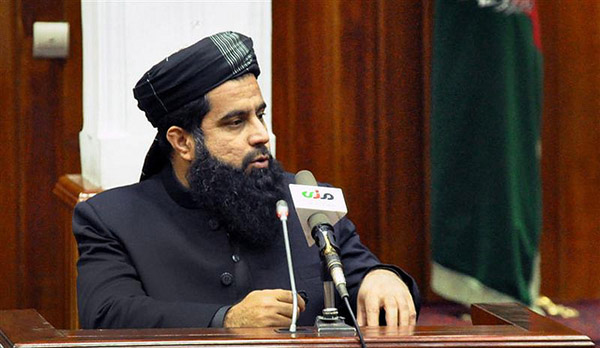It was until yesterday that people, irritated by NATO's operation in Parwan, were quoting Khawasi and were asking outrageously for apology and sympathy of international troops for the brutal civilian deaths of Siagerd. Actually, though the operation was condemned by President Karzai right after being accomplished, the Afghan public didn’t manage to digest the narrative until a retaliation attack by Taliban killed more than 20 civilians in a Lebanese restaurant in Kabul—Taverna du Liban, many of whom were high ranking officials of international organizations including the head of IMF in Afghanistan and a professor of the American University.
As the outcry for Taverna incident went wide, so did it for the Siagerd operation. But the narrative was controversial from the very first moments. Abdul Sattar Khawasi, Deputy Speaker of the Lower House and the head of a committee to investigate the incident claimed that NATO troops inconsiderably bombarded the village for two hours and their soldiers on the ground embarked on a home search operation in which they shot several villagers. On Monday, Gen. Basir Salanagi, the provincial governor of Parwan appeared told that media that the group targeted by the joint operation was accused for killing of more than 180 Afghans and one of the killed commanders was released from Bagram. Yet game was not over. On Tuesday, a video clip of Khawasi leaked to national media showing him mobilizing people against the government. The man in the video talks to a group of people in Siagerd and encourages them to do the ‘Jihad’ against the current government and international community.
This is not the first time someone is opposing the government in sympathy of Taliban so it is not first for Khawasi. The man secures a National Assembly seat by the vote of a constituency which apparently abhors Taliban. He receives salary from a budget funded by international ‘infidels’. But what does he do with government money and with assumingly millions he receives in black? It is simple: he manipulates the narrative. His membership in the parliament grants him a suspicious legitimacy and authority to speak the voice of the public and that his critiques of the government are the unheard words of Afghan people. With that surprising report he presented from Parwan, it seems he was a mole inside the government who has lost cover now.
But it seems President Karzai, not surprisingly though, has listened his narrative of the event more than his own governor’s. While the heartbreaking attack in Kabul didn’t seem to spark President’s instinct as much as the Parwan’s incident did. The palace immediately condemned the operation and called it a barrier to peace talks and negotiation over BSA. It sounds as a logical move and was pretty much expected. In a volatile time where predicaments rarely turn in favor of President in the very last moments of his tenure to leave a legacy behind, such narratives help him a lot. President Karzai is still struggling to make Americans knee down before him for signing of a security pact which would grant further stay for the US troops in Afghanistan. President Karzai sets preconditions of a meaningful peace process and ban of night raids and home searches, what was apparently for him violated in Parwan, to sign the agreement. Narratives as those of Khawasi’s gives the President immensely strong momentum and ability to maneuver over Americans considering the traditional context of Afghanistan where people by default oppose foreigners and back anything in the name of Islam.
But the question is what if Khawasi’s cover wasn’t blown up? What if that short video clip didn’t or couldn’t make its way to a TV station? We, Afghans would have believed his version of the narrative and an outcry for an operation which killed the ‘angry brothers’, but our sworn enemies. In current critical moments, it would have caused severe damage to Afghan’s perception of their international partners and diplomatic relations with them. In a time where people are caught in ambiguities and uncertainties, it is the responsibility of independent media and civil society to keep an always-open eye on the government and people like Khawasi to ensure they don’t highjack public trust for their externally dictated political agenda. People like Khawasi miss-present the facts in a way to portray that the government is broken from the inside. His voice of criticism illustrates himself in the eyes of the public as a national hero who is standing against a corrupt puppet of the West. And that is exactly what shouldn’t be allowed to happen; that people like Khawasi threaten and jeopardize public trust in the system and harbinger a false welcome of Taliban among Afghans.

